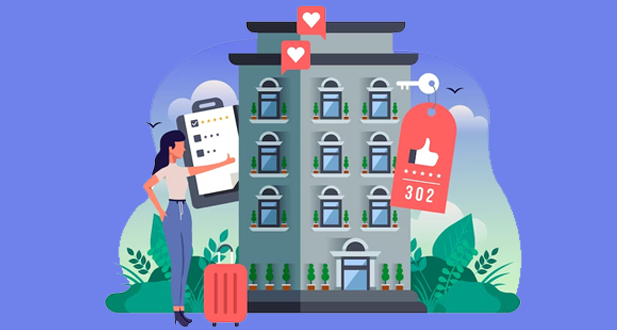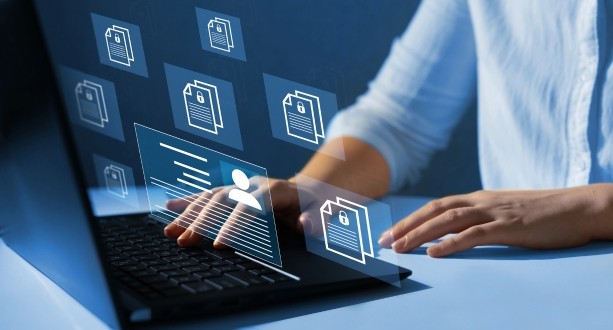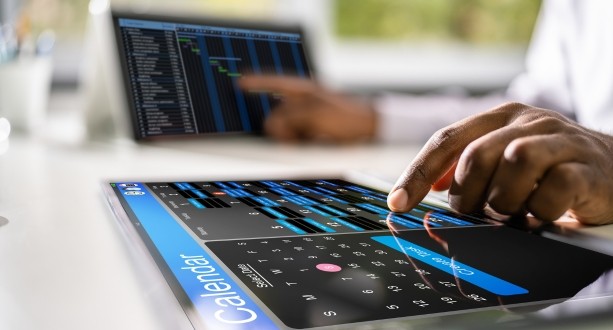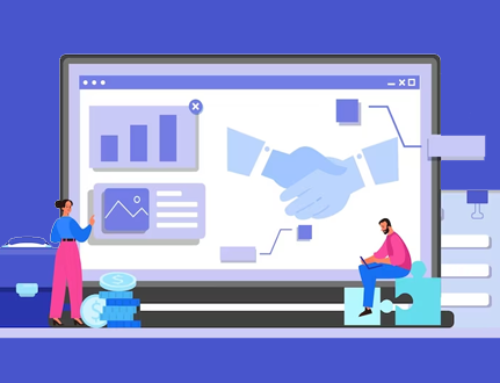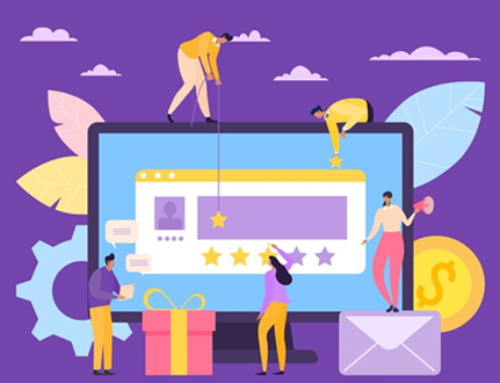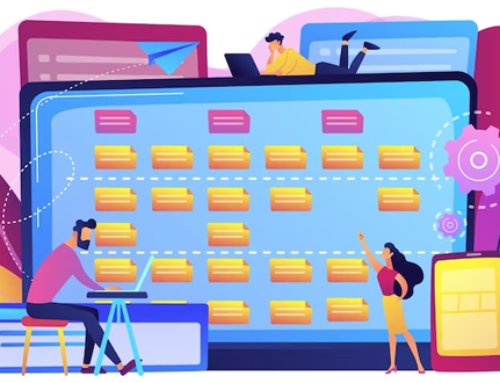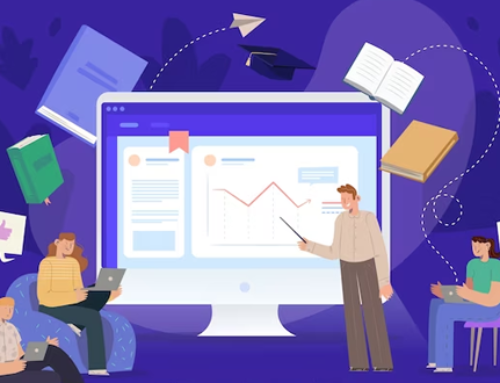Hotel Management Software
Are you searching for a new hotel management system (or vacation rental management) for your hotel to have a single all-in-one solution that contains the necessary components for managing your establishment, such as a PMS, booking engine, channel manager, and website? Choosing an HMS is a crucial choice that should not be hurriedly made, whether you’re working on a ground-up development and building out your tech stack or you need to replace a legacy tech stack for a cloud-based all-in-one HMS solution with a modern user experience.
Professionals in the hospitality sector may save time, enhance the guest experience, and increase income by using excellent hotel management software, which offers real-time visibility into your company. The primary job of any HMS is reservation management or hotel PMS but the property management system has evolved to do so much more (which we’ll cover below).
Finding the best hotel management software depends on a number of factors, including user experience, affordability, capability, and support. With the aid of this guide, you will be able to find the top providers of hotel management software, learn what to look for in demos, read honest testimonials from other hoteliers, and much more. (includes the Hotel Management Software Guide for 2023)
How does hotel management software help hoteliers?
Smaller businesses like B&Bs and guest homes generally employ hotel management software to streamline front desk activities like check-in, back office tasks, and POS (point of sale) when staffing is low.
This non-customizable hotel management solution typically combines the fundamentals of a hotel property management system with fully integrated channel management (to prevent overbookings and connect to travel agencies like Expedia), an online booking engine, a hotel website, a guest service portal, housekeeping, maintenance, event management, email marketing, text messaging, customized reporting, surveys, rate management, dynamic pricing, sales lead generation, point-of-sale, and payment processing.
- Boost ADR (boost revenue): Through the reservation/online booking process (credit card processing) as well as through targeted marketing campaigns, properties are able to track current and prior guest behavior and target market upgrades, add-ons, and packages. To boost ADR for busy times and shoulder nights, dynamic pricing methods can be used using historical occupancy trend records. ADR is increased to greater occupancy periods by applying restriction-based pricing inside your rate manager, which interfaces seamlessly with the built-in channel manager connectivity.
- Improve Occupancy: Your system must be able to quickly and nimbly respond to changing booking patterns in order to increase occupancy. A real All-in-1 HMS offers pace reporting deviations so that the property can spot areas of low occupancy and rapidly implement price modifications across all channels, as well as quickly launch targeted email marketing campaigns to draw in more business during the slower times. Equally crucial is the capacity to develop packages quickly in order to raise interest and occupancy for specific days.
- Save Money & Time: All-in-one hospitality software suppliers combine several automation technologies and services into a single solution to assist in system unification to an integrated all-in-one management solution, saving staff time and enhancing visibility throughout hotel operations. A built-in channel manager with live, two-way direct connections to all significant OTAs and GDSs is available from best-in-class suppliers. As a result of cutting out the intermediary, properties save time and money. Without the need for a middleman like a CRS, room inventory is live across corresponding OTA/GDS. Nevertheless, numerous all-in-one HMS vendors also have connections to reputable CRS platforms.
What distinguishing qualities mark an all-encompassing hotel management system?
Simple & intuitive interface: When selecting mission-critical software for a hotel, a user-friendly interface is the most crucial consideration. Your hotel software will cost you extra money if it is complicated and difficult to use. Common chores shouldn’t take a long time or many stages because doing so slows down your staff and prevents you from expanding quickly, which is why you need a strong hotel management software system.
Optimized for mobile and tablets: Your manager, housekeeping crew, and other staff members shouldn’t have to run back to the office to immediately check the specifics of a booking. Any solution you employ must not only be usable on mobile devices like phones and tablets but also be optimized for their use. And even better, your owner ought to be able to check performance while on holiday.
Clear grid visibility: By default, your grid should be able to add special events that are taking place in the area, highlight returning visitors, and identify guests who have not yet paid their bills. You should be able to quickly and readily see important information about your guests using your grid.
Are you focusing on increasing customer loyalty? In order to provide a more individualized experience during their subsequent stay, guest profiles record your guests’ contact information, stay history, and even preferences. Returning visitors will find it much simpler to create a guest profile that stores their credit cards.
The most widely used hotel management systems
The best hotel management software for your establishment will depend on a number of factors, some of which are personal preferences but the majority of which are property-specific. Is your hotel a modest establishment with a tight budget? Or is your establishment a posh resort with numerous shops and a high ADR? The primary personas identified by HTR below are based on shared property traits that often point to comparable product preferences.
What to anticipate as new hotel management software is implemented
When onboarding new properties quickly and efficiently, an HMS excels in successfully communicating with key decision-makers and sharing the full scope of the implementation project during the kickoff call. For each of the ensuing conversations, the provider should make sure that important decision-makers are present and aware of the significance of their contributions to the implementation’s success.
It requires care to import data from the current system, establish gateway links, and build out rooms, rates, and third-party connections. The onboarding process will be sped up by working with a hospitality management system that can import previous guest experience and hotel reservation data, as well as give historical data for reporting purposes. While larger properties with more complicated interfaces should budget for 4+ weeks of implementation, smaller businesses can prepare for a 3-week onboarding period.
Features of a Hotel Management System
Because there are so many factors to take into account, choosing a hotel management system can be difficult, much like choosing a car. It can be difficult to get trustworthy information about the PMS qualities that are most crucial.
“One size fits all is a common fallacy in corporate software. Depending on the size of the hotel, the size of the chain, the location, and a host of other factors, every hotel has very particular needs. Additionally, every hotel owner and manager has unique preferences for design, usability, and support. When working with PMS vendors, it is imperative to be clear about the issue at hand and make sure you aren’t being sold on solutions your property doesn’t require, according to Amelia Gain, CEO of well-known Hotel PMS company Preno.
Veteran hoteliers frequently compare how a hotel operates to a duck on a lake. The duck appears calm and composed above the water, but its legs are kicking frantically underneath it. Guests are frequently anxious about their own travel arrangements or wish to entirely escape stress while on vacation, so staff must appear calm and at ease in the face of the bustle.
Hotel management software is the most crucial system in the entire hotel, and it is one of the main tools that hoteliers use to make operations seem simple to visitors. Your hotel management system is the foundation of your business, whether you work for a local bed & breakfast or a large international hotel chain property.
performing tasks Prioritizing hotel rooms that need to be cleaned for early VIP arrivals is a task for guest service workers. Professionals in sales and event management must set aside areas for groups. For data and operational insights, hotel management must have access to the system.
One of the most crucial and challenging decisions a hotel operator will ever make is choosing a vendor for their hotel management system. By the time you finish reading this article, you’ll know exactly what to look for when choosing the right technology for your home.
The Most Important Features of Hotel Management Software
Let’s begin with the fundamentals. These characteristics are absolute necessities for any contemporary hotelier who wants to use technology to enhance the guest experience, increase the effectiveness of back-office operations, and create enduring relationships with visitors.
- Intuitive & easy-to-use interface: When selecting mission-critical software for a hotel, a user-friendly interface is the most crucial consideration. Your hotel software will cost you extra money if it is complicated and difficult to use. Common activities shouldn’t require a lot of time and effort because doing so slows down your team and prevents you from expanding swiftly.
- Optimized for mobile and tablets: Your manager, housekeeping crew, and other staff members shouldn’t have to run back to the office to immediately check the specifics of a booking. Any solution you employ must not only be usable on mobile devices like phones and tablets but also be optimized for their use. Even better, while on vacation, your owner ought to be able to check on performance.
- Clear grid visibility: By default, your grid should be able to add special events that are taking place in the area, highlight returning visitors, and identify guests who have not yet paid their bills. You should be able to quickly and readily see important information about your guests using your grid.
- Are you focusing on increasing customer loyalty? In order to provide a more individualized experience during their subsequent stay, guest profiles record your guests’ contact information, stay history, and even preferences. Returning visitors will find it much simpler to create a guest profile that stores their credit cards.
- Email automation: By sending out personalized, customized, and automated emails, you can interact with visitors and lessen the amount of human work your team must do. The automated email feature enables you to create a communication journey from the initial booking to targeted offers for recurring visitors using your templates.
- Housekeeping management: The housekeeping personnel should be able to mark rooms as clean, filthy, or out of order using the PMS. The front desk can accommodate early check-ins and room changes without having to radio the housekeeping supervisor thanks to have access to this data in one convenient location.
- Reservation management: Front office features and reservations management are two of the most crucial PMS elements. Hoteliers can do away with a physical reservation book by hosting all of their reservations digitally. You must be able to set prices, manage availability, present specials, and view reservations on a calendar inside reservations management.
- Room management: Think of a PMS’s room management feature as your digital front desk. With only a few clicks, front desk staff members may check guests in and out, as well as cancel or extend reservations.
- Group reservations: functionality is essential if your hotel intends to organize any kind of event or large group of visitors. A room list can be exported, billing settings can be set up to charge one account for several rooms, and guests can make bookings inside the room block, among other advantages of group reservations.
- Billing: The majority of visitors request a copy of their bill when they check out, so your PMS should be able to quickly export the folios of visitors that include all fees associated with their stay. Similar to this, you need reliable, uncomplicated financial reporting that enables you to match up revenue and expenses from outlets, vendors, and more.
- Payment processing: The days of guests paying with cash or checks are long gone, so you’ll need a PMS with integration for a payment processor so you can easily charge visitors’ credit cards and have safe access to popular payment gateways.
- Business intelligence & reporting: If you can’t measure your performance, how can you tell if your hotel is doing well? A PMS with strong reporting capabilities will provide you with information on your revenue, ADR, RevPAR, and a variety of other indicators, allowing you to identify areas for growth and monitor your progress toward your objectives.
- Rate management: Are you planning to offer value-added packages or a non-refundable rate? If so, you’ll need rate management features that let you create a variety of personalized rate plans.
- User logs and permissions: Due to the high staff turnover in the hotel business, it’s critical to hold front-line employees accountable with thorough user logs so that there is an automated record in the event of any errors and to ensure adequate training and problem-solving. Additionally, customers today want increased security, therefore it is crucial that employees only have access to the components of the hotel management system necessary to carry out their essential duties without also having access to sensitive data like credit card information.
Frequently Asked Questions
Pre-booking and booking features are included in reservations. profiles to categorize different types of guests, rights, and memberships. For large groups of visitors with various privileges, there are groups and blocks. For rooms, amenities, and supplies, rate and inventory control monitoring is carried out.
What is the most common property management system for hotels? Some of the most cutting-edge providers of hotel PMS software are RoomRaccoon, Cloudbeds, RMS Cloud, and Little Hotelier (by Siteminder).
Using a computer and an internet connection, a web-based system allows access to a software system.
A complete system called ERP for the hospitality sector keeps track of all the activities and services provided by your hotel in real-time. You can keep a careful eye on all of your hotel’s ongoing operations, including room service, inventory control, and check-in procedures.
